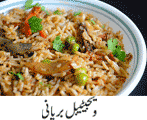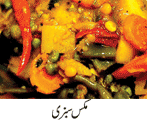Hadith on Oppressionظلم و جبر کے بارے میں احادیث
فہرست
Hadith on Oppression is Unlawful 1. ظلم کرنا حرام ہے
Abu Dharr reported Allah's Messenger ( صلی اللہ علیہ وسلم ) as saying that Allah, the Exalted and Glorious, said: My servants, I have made oppression unlawful for Me and unlawful for you, so do not commit oppression against one another. My servants, all of you are liable to err except one whom I guide on the right path, so seek right guidance from Me so that I should direct you to the right path. O My servants, all of you are hungry (needy) except one whom I feed, so beg food from Me, so that I may give that to you. O My servants, all of you are naked (need clothes) except one whom I provide garments, so beg clothes from Me, so that I should clothe you. O My servants, you commit error night and day and I am there to pardon your sins, so beg pardon from Me so that I should grant you pardon. O My servants, you can neither do Me any harm nor can you do Me any good. O My servants, even if the first amongst you and the last amongst you and even the whole of human race of yours, and that of jinns even, become (equal in) God-conscious like the heart of a single person amongst you, nothing would add to My Power. O My servants, even if the first amongst you and the last amongst you and the whole human race of yours and that of the Jinns too in unison become the most wicked (all beating) like the heart of a single person, it would cause no loss to My Power. O My servants, even if the first amongst you and the last amongst you and the whole human race of yours and that of jinns also all stand in one plain ground and you ask Me and I confer upon every person what he asks for, it would not. in any way, cause any loss to Me (even less) than that which is caused to the ocean by dipping the needle in it. My servants, these for you I shall reward you for thern, so he who deeds of yours which I am recording finds good should praise Allah and he who does not find that should not blame anyone but his ownself. Sa'id said that when Abu Idris Khaulini narrated this hadith he knelt upon his knees.
Book: Sahih Muslim, Chapter: (Virtue, Enjoining Good Manners, and Joining of the Ties of Kinshio), Hadees No. 6572مروان بن محمد دمشقی نے کہا؛ ہمیں سعید بن عبدالعزیز نے ربیعہ بن یزید سے حدیث بیان کی، انہوں نے ابو ادریس خولانی سے، انہوں نے حضرت ابوذر رضی اللہ عنہ سے اور انہوں نے نبی صلی اللہ علیہ وسلم سے ایک ایسی روایت بیان کی جو آپ نے اللہ تبارک و تعالیٰ سے بیان کی، اللہ تعالیٰ نے فرمایا: " میرے بندو! میں نے ظلم کرنا اپنے اوپر حرام کیا ہے اور تمہارے درمیان بھی اسے حرام قرار دیا ہے ، اس لیے تم ایک دوسرے پر ظلم نہ کرو۔ میرے بندو! تم سب کے سب گمراہ ہو، سوائے اس کے جسے میں ہدایت دے دوں، اس لیے مجھ سے ہدایت مانگو، میں تمہیں ہدایت دوں گا۔ میرے بندو! تم سب کے سب بھوکے ہو ، سوائے اس کے جسے میں کھلاؤں، اس لیے مجھ سے کھانا مانگو، میں تمہیں کھلاؤں گا ۔ میرے بندو! تم سب کے سب ننگے ہو ، سوائے اس کے جسے میں لباس پہناؤں، لہذا مجھ سے لباس مانگو میں تمہیں لباس پہناؤں گا۔ میرے بندو! تم دن رات گناہ کرتے ہو اور میں ہی سب کے سب گناہ معاف کرتا ہوں، سو مجھ سے مغفرت مانگو میں تمہارے گناہ معاف کروں گا۔ میرے بندو! تم کبھی مجھے نقصان پہنچانے کی طاقت نہیں رکھو گے کہ مجھے نقصان پہنچا سکو، نہ کبھی مجھے فائدہ پہنچانے کے قابل ہو گے کہ مجھے فائدہ پہنچا سکو۔ میرے بندو! اگر تمہارے پہلے والے اور تمہارے بعد والے اور تمہارے انسان اور تمہارے جن سب مل کر تم میں سے ایک انتہائی متقی انسان کے دل کے مطابق ہو جائیں تو اس سے میری بادشاہت میں کوئی اضافہ نہیں ہوسکتا۔ میرے بندو! اگر تمہارے پہلے والے اور تمہارے بعد والے اور تمہارے انسان اور تمہارے جن سب مل کر تم میں سے سب سے فاجر آدمی کے دل کے مطابق ہو جائیں تو اس سے میری بادشاہت میں کوئی کمی نہیں ہو گی۔ میرے بندو! اگر تمہارے پہلے اور تمہارے پچھلے اور تمہارے انسان اور تمہارے جن سب مل کر ایک کھلے میدان میں کھڑے ہو جائیں اور مجھ سے مانگیں اور میں ہر ایک کو اس کی مانگی ہوئی چیز عطا کر دوں تو اس سے جو میرے پاس ہے، اس میں اتنا بھی کم نہیں ہو گا جو اس سوئی سے ( کم ہو گا ) جو سمندر میں ڈالی ( اور نکال لی ) جائے۔ " سعید نے کہا: ابوادریس خولانی جب یہ حدیث بیان کرتے تو اپنے گھٹنوں کے بل بیٹھ جاتے۔
Book: Sahih Muslim, Chapter: (Virtue, Enjoining Good Manners, and Joining of the Ties of Kinshio), Hadees No. 6572حَدَّثَنَا عَبْدُ اللَّهِ بْنُ عَبْدِ الرَّحْمَنِ بْنِ بَهْرَامَ الدَّارِمِيُّ حَدَّثَنَا مَرْوَانُ يَعْنِي ابْنَ مُحَمَّدٍ الدِّمَشْقِيَّ حَدَّثَنَا سَعِيدُ بْنُ عَبْدِ الْعَزِيزِ عَنْ رَبِيعَةَ بْنِ يَزِيدَ عَنْ أَبِي إِدْرِيسَ الْخَوْلَانِيِّ عَنْ أَبِي ذَرٍّ عَنْ النَّبِيِّ صَلَّى اللَّهُ عَلَيْهِ وَسَلَّمَ فِيمَا رَوَى عَنْ اللَّهِ تَبَارَكَ وَتَعَالَى أَنَّهُ قَالَ يَا عِبَادِي إِنِّي حَرَّمْتُ الظُّلْمَ عَلَى نَفْسِي وَجَعَلْتُهُ بَيْنَكُمْ مُحَرَّمًا فَلَا تَظَالَمُوا يَا عِبَادِي كُلُّكُمْ ضَالٌّ إِلَّا مَنْ هَدَيْتُهُ فَاسْتَهْدُونِي أَهْدِكُمْ يَا عِبَادِي كُلُّكُمْ جَائِعٌ إِلَّا مَنْ أَطْعَمْتُهُ فَاسْتَطْعِمُونِي أُطْعِمْكُمْ يَا عِبَادِي كُلُّكُمْ عَارٍ إِلَّا مَنْ كَسَوْتُهُ فَاسْتَكْسُونِي أَكْسُكُمْ يَا عِبَادِي إِنَّكُمْ تُخْطِئُونَ بِاللَّيْلِ وَالنَّهَارِ وَأَنَا أَغْفِرُ الذُّنُوبَ جَمِيعًا فَاسْتَغْفِرُونِي أَغْفِرْ لَكُمْ يَا عِبَادِي إِنَّكُمْ لَنْ تَبْلُغُوا ضَرِّي فَتَضُرُّونِي وَلَنْ تَبْلُغُوا نَفْعِي فَتَنْفَعُونِي يَا عِبَادِي لَوْ أَنَّ أَوَّلَكُمْ وَآخِرَكُمْ وَإِنْسَكُمْ وَجِنَّكُمْ كَانُوا عَلَى أَتْقَى قَلْبِ رَجُلٍ وَاحِدٍ مِنْكُمْ مَا زَادَ ذَلِكَ فِي مُلْكِي شَيْئًا يَا عِبَادِي لَوْ أَنَّ أَوَّلَكُمْ وَآخِرَكُمْ وَإِنْسَكُمْ وَجِنَّكُمْ كَانُوا عَلَى أَفْجَرِ قَلْبِ رَجُلٍ وَاحِدٍ مَا نَقَصَ ذَلِكَ مِنْ مُلْكِي شَيْئًا يَا عِبَادِي لَوْ أَنَّ أَوَّلَكُمْ وَآخِرَكُمْ وَإِنْسَكُمْ وَجِنَّكُمْ قَامُوا فِي صَعِيدٍ وَاحِدٍ فَسَأَلُونِي فَأَعْطَيْتُ كُلَّ إِنْسَانٍ مَسْأَلَتَهُ مَا نَقَصَ ذَلِكَ مِمَّا عِنْدِي إِلَّا كَمَا يَنْقُصُ الْمِخْيَطُ إِذَا أُدْخِلَ الْبَحْرَ يَا عِبَادِي إِنَّمَا هِيَ أَعْمَالُكُمْ أُحْصِيهَا لَكُمْ ثُمَّ أُوَفِّيكُمْ إِيَّاهَا فَمَنْ وَجَدَ خَيْرًا فَلْيَحْمَدْ اللَّهَ وَمَنْ وَجَدَ غَيْرَ ذَلِكَ فَلَا يَلُومَنَّ إِلَّا نَفْسَهُ قَالَ سَعِيدٌ كَانَ أَبُو إِدْرِيسَ الْخَوْلَانِيُّ إِذَا حَدَّثَ بِهَذَا الْحَدِيثِ جَثَا عَلَى رُكْبَتَيْهِ
Book: Sahih Muslim, Chapter: (Virtue, Enjoining Good Manners, and Joining of the Ties of Kinshio), Hadees No. 6572Be On Your Guard Against Committing Oppression 2. ظلم سے بچنے کے بارے میں
Jabir b. Abdullah reported that Allah's Messenger ( صلی اللہ علیہ وسلم ) said: Be on your guard against committing oppression, for oppression is a darkness on the Day of Resurrection, and be on your guard against stinginess for stinginess destroyed those who were before you, as it incited them to shed blood and make lawful what was unlawful for them.
Book: Sahih Muslim, Chapter: (Virtue, Enjoining Good Manners, and Joining of the Ties of Kinshio), Hadees No. 6576حضرت جابر بن عبداللہ رضی اللہ عنہ سے روایت ہے کہ رسول اللہ صلی اللہ علیہ وسلم نے فرمایا : " ظلم سے بچو ، کیونکہ ظلم قیامت کے دن ( دلوں پر چھانے والی ) ظلمتیں ہوں گی ۔ بخل اور ہوس سے بچو ، کیونکہ تم سے پہلے لوگوں کو بخل و ہوس نے ہلاک کر دیا ، اسی نے ان کو اکسایا تو انہوں نے اپنے ( ایک دوسرے کے ) خون بہائے اور اپنی حرمت والی چیزوں کو حلال کر لیا ۔ "
Book: Sahih Muslim, Chapter: (Virtue, Enjoining Good Manners, and Joining of the Ties of Kinshio), Hadees No. 6576حَدَّثَنَا عَبْدُ اللَّهِ بْنُ مَسْلَمَةَ بْنِ قَعْنَبٍ حَدَّثَنَا دَاوُدُ يَعْنِي ابْنَ قَيْسٍ عَنْ عُبَيْدِ اللَّهِ بْنِ مِقْسَمٍ عَنْ جَابِرِ بْنِ عَبْدِ اللَّهِ أَنَّ رَسُولَ اللَّهِ صَلَّى اللَّهُ عَلَيْهِ وَسَلَّمَ قَالَ اتَّقُوا الظُّلْمَ فَإِنَّ الظُّلْمَ ظُلُمَاتٌ يَوْمَ الْقِيَامَةِ وَاتَّقُوا الشُّحَّ فَإِنَّ الشُّحَّ أَهْلَكَ مَنْ كَانَ قَبْلَكُمْ حَمَلَهُمْ عَلَى أَنْ سَفَكُوا دِمَاءَهُمْ وَاسْتَحَلُّوا مَحَارِمَهُمْ
Book: Sahih Muslim, Chapter: (Virtue, Enjoining Good Manners, and Joining of the Ties of Kinshio), Hadees No. 6576Oppression can be defined as an unfair and cruel treatment of people, particularly when you deny them the same rights and freedom. It is one of the root causes of many of the most serious conflicts in the world, including those taking place between religions, races, sexes, liberals and conservatives, and labour and management.
Islam is not only against all types of oppression, it teaches tolerances, harmony and forbearance. In fact, all the types of worships, in one or the other, inspire and promote the spirit of love, peace, sacrifice, sincerity, and selflessness.
Allah Almighty strictly forbids oppression even in the matters of religious. Here the verse 256 of Surah Al-Baqarah (Chapter 2) can be quoted as a reference:
لَا إِكْرَاهَ فِي الدِّينِ ۖ قَد تَّبَيَّنَ الرُّشْدُ مِنَ الْغَيِّ ۚ فَمَن يَكْفُرْ بِالطَّاغُوتِ وَيُؤْمِن بِاللَّهِ فَقَدِ اسْتَمْسَكَ بِالْعُرْوَةِ الْوُثْقَىٰ لَا انفِصَامَ لَهَا ۗ وَاللَّهُ سَمِيعٌ عَلِيمٌ (2:256)
Translation: “There shall be no compulsion in [acceptance of] the religion. The right course has become clear from the wrong. So, whoever disbelieves in Taghut and believes in Allah has grasped the most trustworthy handhold with no break in it. And Allah is Hearing and Knowing.”
All the Ghazwaz (the Holy Battles) were fought to curb oppression and cruelty. On the other hand, the life of Holy Prophet Hazrat Muhammad (May peace and blessings of Allah be upon Him) is replete with the message of love, tolerance and self-denial.
In a Sahih Hadith, Allah’s Messenger (ﷺ) has been narrated as saying, “Guard yourself against committing oppression, for oppression is a darkness on the Day of Resurrection”. (Hadees No. 6576, Sahih Muslim)











